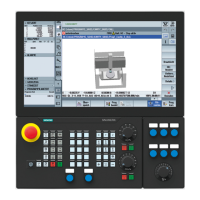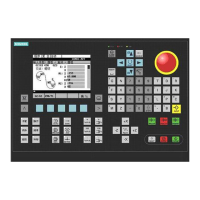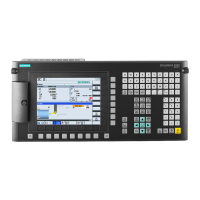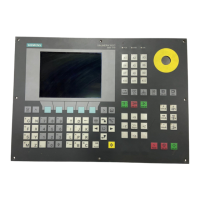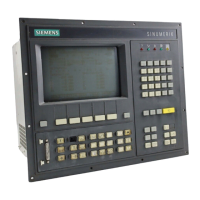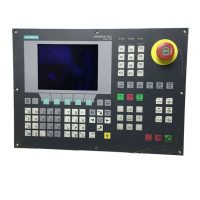Detailed Description
2.5 Referencing with distance-coded reference marks
Reference Point Approach (R1)
Function Manual, 08/2005 Edition, 6FC5397-0BP10-0BA0
2-21
2.5 2.5 Referencing with distance-coded reference marks
2.5.1 General overview
Distance-coded reference marks
Measuring systems with distance-coded reference marks consist of two parallel scale tracks:
• Incremental grating
• Reference mark track
The distance between any two consecutive reference marks is defined in different ways. This
makes it possible to determine the absolute position of the machine axis when two
consecutive reference marks are crossed. For example, if the distance between the
reference marks is approx. 10 mm, a traverse path of approx. 20 mm is all that is required to
reference the machine axis.
Referencing can be performed from any axis position in the positive or negative direction
(exception: end of travel range).
2.5.2 Basic parameter assignment
Linear measuring systems.
The following data must be set to parameterize linear measuring systems:
• The absolute offset between machine zero and the position of the 1st reference mark of
the linear measuring system:
MD34090 $MA_REFP_MOVE_DIST_CORR (reference point/absolute offset)
See also below: Determining the absolute offset
• Orientation of the length measuring system (equidirectional or inverse) relative to the
machine system coordinate system:
MD34320 $MA_ENC_INVERS (length measuring system inverse to the machine system)
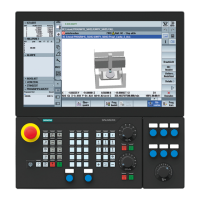
